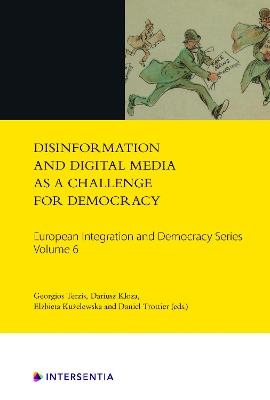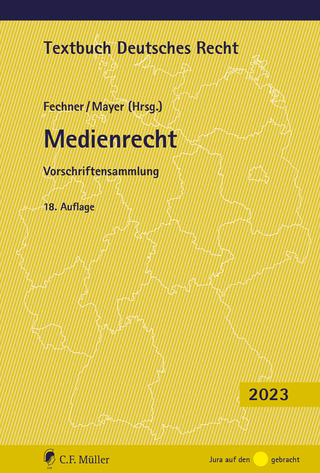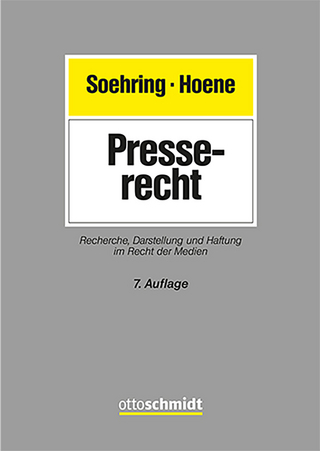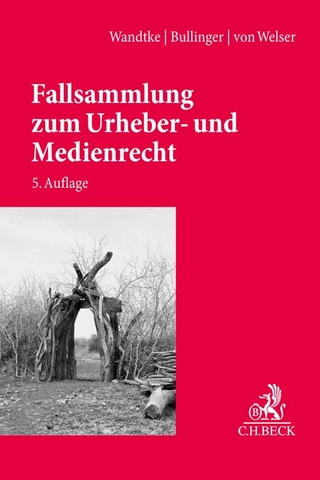
Disinformation and Digital Media as a Challenge for Democracy, Volume 6
Intersentia Ltd (Verlag)
978-1-78068-975-3 (ISBN)
"This book is motivated, to a large extent, by some recent troubling developments in public discourse, namely the developments in information, misinformation and disinformation practices. From the beginning of history, various and diverse means or channels of communication have been used to inform, misinform (unintentionally) and disinform (deliberately). However, in recent decades, the emergence and development of new information and communications technologies (ICT), combined with the ever-increasing digitalisation and globalisation of almost every aspect of modern life, among others, have opened up new and uncharted avenues to that end. This book therefore focuses on disinformation practices occurring with the help of digital media as these practices bring to the fore profound negative ramifications for the functioning of a democratic polity. "
- from the Introduction by the editors
"It would be pleasant to think that democracies will always wake up to their threats - internal and external - and heal themselves in good time before it is too late. [...] Yet, it is not too late to find public policy solutions which can restore information technologies to their original role of facilitators of democracy rather than their undertakers. But the timeframe is closing and we need these solutions sooner rather than later.
This is why the present volume of expert analyses bringing together many academics arrives at just the right time. It aspires to deepen our understanding of the dangers of fake news and disinformation, but also charts well informed and realistic ways ahead. To my mind, it is certainly one of the most comprehensive and useful studies of this topic to date and I recommend it to the general reader as much as to the policy-maker as a reliable guide and mentor."
- from the Foreword by Prof. Dr. Jamie Shea, Vesalius College, Brussels
Dariusz (Darek) Kloza is researcher at the Research Group on Law, Science, Technology and Society (LSTS) at the Vrije Universiteit Brussel (VUB), where he is a founding member of the Brussels Laboratory for Data Protection & Privacy Impact Assessments (d.pia.lab). He also freelances at the Centre for Direct Democracy Studies (CDDS) at the University of Bialystok (Poland), where he is co-editor of the 'European Integration and Democracy' Series (Intersentia). His expertise concentrates on the governance of privacy and personal data, in particular on the tools for their protection. He has been involved in several collaborative research projects (co-)funded by the European Union. He earned a PhD in Law from the VUB (2019) with a thesis on the concept of impact assessment in European privacy and personal data protection law. He holds an LL.M. in Law and Technology (2010) from Tilburg Institute for Law, Technology, and Society (TILT) at Tilburg University (with distinction) and a master degree in law from the University of Bialystok (2008), including a student exchange at the University of Copenhagen (2007-08). Previously, he held in parallel a part-time research position at Peace Research Institute Oslo (PRIO; 2015-17) and visiting fellowships, among others, at Bond University (Australia; 2016).Elzbieta Kuzelewska is Associate Professor at the Faculty of Law, University of Bialystok, Poland, where since October 2019 she holds a position of Vice-Dean for Science. She is a Chair of the Centre for Direct Democracy Studies (CDDS) at the Faculty of Law, University of Bialystok, she holds a master's degree in law and a PhD degree and a habilitation in political science. Her research fields include constitutional law, direct democracy, European integration and contemporary political systems. She has been teaching in several European universities within the Erasmus+ programme as well as other bilateral agreements, and she has held visiting positions at Michigan State University School of Law (September 2018), among others. She is Co-Editor-in-Chief of European Integration and Democracy Series, published by Intersentia Cambridge.
Part I. Theoretical Approaches to and the Conceptualisation of Disinformation
1. Should We be Afraid of Fake News? (p. 1)
2. From Misinformation to Modern Lugenpresse: The Redefinition of Fake News (p. 11)
3. Information and Disinformation and the Transformation of Modern Democracy: From Media Bias through the 'Echo Chamber' and the 'Filter Bubble' to Fake News (p. 31)
4. (Dis)Information, Neoliberalism and the Strength of Democracy in the Digital Age (p. 47)
5. Democracy and the Pre-Conditions of Communication (p. 81)
6. Post-Truth Discourses and their Limits: A Democratic Crisis? (p. 103)
7. Elite Theory, Media Regulation and 'Fake News' (p. 127)
Part II. Experience of Dealing with Disinformation
8. True Story! Challenges to Democracy not Covered by the Media: Lessons from the (Non-)Coverage of the Greek Financial Crisis (p. 149)
9. The Scourge of Fake News in Greece (p. 161)
10. Digital Disinformation in a Deeply Divided Society: Reflections from Northern Ireland (p. 179)
11. Disinformation and Fear Propaganda as Justification for the War on Terror During George W. Bush's Presidency (p. 201)
12. Performance Analysis of Fact-Checking Organisations and Initiatives in Europe: A Critical Overview of Online Platforms Fighting Fake News (p. 217)
Part III. Solutions to Deal with Disinformation and their Critique
13. Disinformation and Fake News in Current Jurisprudence of the Strasbourg Court: An Unsolved Problem (p. 247)
14. Fake News and Freedom of Expression and Information: The Legal Framework and Policy Actions at the EU Level to Address Online Disinformation (p. 269)
15. Fighting Online Disinformation: Did the EU Code of Practice Forget about Freedom of Expression? (p. 291)
16. Regulating Internet Content with Technology: Analysis of Policy Initiatives Relevant to Illegal Content and Disinformation Online in the European Union (p. 309)
17. The War against Fake News in the Digital Age and the Weapons in Our Intellectual Arsenal (p. 327)
18. In the Name of Scientific Advancement: How to Assess What Constitutes 'Scientific Research' in the GDPR to Protect Data Subjects and Democracy (p. 341)
19. Tackling Mis- and Disinformation in the Context of Scientific Uncertainty: The Ongoing Case of the COVID-19 'Infodemic' (Invited Contribution) (p. 367)
| Erscheinungsdatum | 11.05.2024 |
|---|---|
| Reihe/Serie | European Integration and Democracy |
| Verlagsort | Cambridge |
| Sprache | englisch |
| Maße | 160 x 240 mm |
| Themenwelt | Recht / Steuern ► Allgemeines / Lexika |
| Recht / Steuern ► EU / Internationales Recht | |
| Recht / Steuern ► Privatrecht / Bürgerliches Recht ► Medienrecht | |
| ISBN-10 | 1-78068-975-6 / 1780689756 |
| ISBN-13 | 978-1-78068-975-3 / 9781780689753 |
| Zustand | Neuware |
| Informationen gemäß Produktsicherheitsverordnung (GPSR) | |
| Haben Sie eine Frage zum Produkt? |
aus dem Bereich


